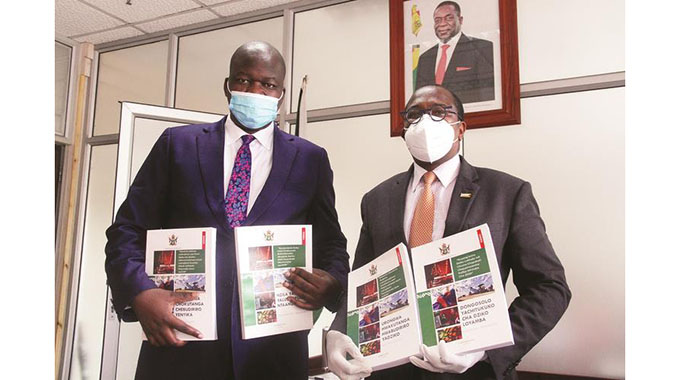NDS1 positions Zimbabwe for regional economic integration gains
THE National Development Strategy (NDS1), the country’s new five-year development roadmap, will play a key role in positioning Zimbabwe for increased gains within the regional economic integration framework, Finance and Economic Development Minister Professor Mthuli Ncube has said.
This comes as the Government is seriously focusing its policy on the regional, continental and international integration initiatives, as these are key in promoting economic development.
Zimbabwe is part of the key regional integration initiatives under Sadc, Comesa and, most recently, the African Continental Free Trade Area (AfCFTA).
These are seen as critical in ensuring that all inputs into production emanating from the above-mentioned trading blocs are imported duty free, while ensuring that exports into the same destinations are competitive as a result of low tariffs and streamlined customs procedures, among other preferential trading arrangements.
The country has already signed and ratified the AfCFTA and preparations for trade under the same arrangement are at an advanced stage.
The NDS1 (2021-2025), which builds on the milestones achieved under the Transitional Stabilisation Programme (TSP:2018-2020), thus, priorities economic growth and national stability as one of the key pillars to economic development, with regional integration under focus, said the minister.
“Business should, thus, take advantage of the expanded market for both raw materials and exports, with a view to enhance the competitiveness of locally produced goods, thereby contributing to the country’s developmental agenda,” said Prof Ncube.
“Empirical studies already confirm the positive relationship between free trade arrangements and economic growth and development.”
The minister said this in remarks last Thursday on the occasion of the belated International Customs Day Commemorations — set aside to recognise and celebrate the role of customs officials and border agencies in facilitating international trade, as well as collection of customs revenues.
Zimra hosted the event virtually under the theme: ‘Customs bolstering recovery, renewal and resilience for a sustainable supply chain’.
“Customs should, thus, play a pivotal role in the realisation of the aspirations of the AfCFTA, which seeks, among other issues, to boost intra-African trade in goods through adoption of efficient customs clearance procedures and processes, as well as facilitating transit of commercial cargo,” said Prof Ncube.
He directed the Zimbabwe Revenue Authority (Zimra) to contribute more towards the realisation of the regional integration agenda through initiatives such as streamlining and simplification of customs procedures and processes, modernisation and harmonisation of the export and import processes to ensure effectiveness and efficiency in the movement of cargo at ports of entry.
This includes continuously upgrading customs clearance systems through dedicating adequate resources for the upgrading of existing ICT infrastructure and strict enforcement of the electronic cargo tracking system, which is key in detecting and reducing incidences of transit fraud; among other initiatives, said Prof Ncube.
“The attainment of the developmental agenda enunciated in NDS1 requires transformation in both the public and private sector to comprehensively address aspects of silo mentality, thereby building collective accountability,” he said.
“There is, thus, need for Zimra to forge stronger partnerships with other border agencies and associated partners and work towards the enhancement of the trade facilitation mandate.” Since the outbreak of the deadly Covid-19 pandemic, revenue authorities have been forced to shift operations to digital platforms and introduce strict mitigation measures, in an attempt to protect the lives of customs officials.
Zimbabwe has recently been using the ASYCUDA system, which is the backbone of the online customs clearance system, but is subject to minimal interruptions.
Despite the disruption caused by Covid-19 lockdowns, the Government has ensured that cross border trade of goods continues to ensure the local industry obtains key imported inputs into production, and also export revenue.-roncieco.zw










